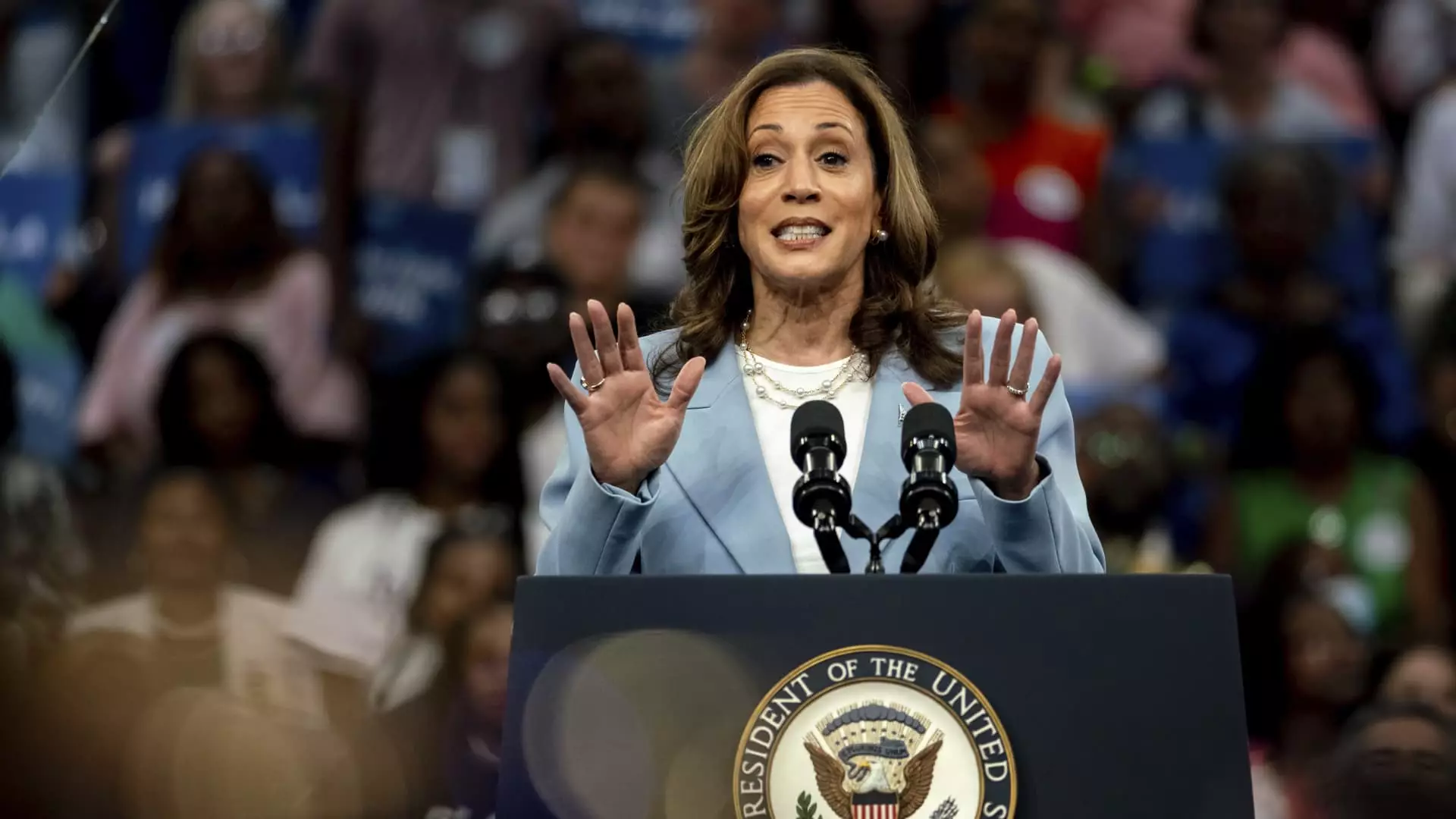In a compelling speech delivered to a raucous crowd of over 10,000 supporters in Atlanta, Vice President Kamala Harris laid out her strategy for tackling high consumer prices and deceptive “junk fees” that have been a point of emphasis within President Joe Biden’s economic agenda. With only 98 days remaining until the election, Harris positioned herself as a force for change. “On day one, I will take on price gouging and bring down costs,” she asserted, embodying the spirit of her campaign by criticizing banking institutions and corporations that capitalize on unsuspecting consumers through hidden charges and surprise fees.
Harris’s rhetoric echoed throughout her address, as she targeted large corporate entities for the persistent inflation affecting American families. By blaming corporate landlords for exorbitant rent increases and pharmaceutical companies for soaring prescription drug costs, Harris presented a clear narrative of corporate exploitation. “We will take on corporate landlords and cap unfair rent increases,” she promised, suggesting a comprehensive vision for regulating sectors that heavily burden average Americans. This message resonated with voters who have felt increasingly squeezed by high living costs, revealing a pivotal moment for her campaign.
However, it is imperative to scrutinize how realistic her proposals are. While the intention to “cap unfair rent increases” is admirable, it raises questions about the mechanics of such regulation and the blueprint for implementation. Going forward, a transparent plan detailing her policy executions would solidly back her proclamations and lessen skepticism regarding her administration’s potential effectiveness.
Harris also seized the opportunity to challenge former President Donald Trump, mocking his decision to forgo a scheduled debate. “Donald, I do hope you’ll reconsider, to meet me on the debate stage. Because, as the saying goes, if you’ve got something to say, say it to my face,” she quipped, drawing laughter and cheers from the crowd. This tactic spotlights a more combative narrative, potentially appealing to voters looking for a candidate willing to engage vigorously with the opposition.
Such direct confrontation not only rallies her base but also enhances her visibility as a candidate. Nevertheless, it remains to be seen whether this approach will foster meaningful partisan engagement or merely serve as sound bites for the election cycle.
Harris’s campaign has gained significant traction, raising more than $200 million, with two-thirds stemming from new supporters—an extraordinary figure that demonstrates her galvanizing effect in the current political landscape. This heightened interest reveals an efficacy in connecting with the electorate, shown by over 360,000 new volunteer sign-ups. Such grassroots engagement is crucial in swing states like Georgia, where shifting political paradigms could pave the way for a Democratic resurgence.
Poll results from Bloomberg/Morning Consult reflect a tightly contested race, with Harris at 48% and Trump at 47% across battleground states. This narrow margin illustrates the high stakes of the forthcoming election, compelling Harris to maintain strong engagement and remain vigilant as Trump’s base remains formidable. Notably, her breakthrough in Michigan—an 11-point lead against Trump in a state previously leaning towards Biden—demonstrates possible shifts in voter sentiment that could have significant implications.
Kamala Harris’s speech in Atlanta not only outlined her economic agenda but also firmly positioned her candidacy within the broader context of American politics. By addressing consumer costs and corporate accountability, and exhibiting a vigorous stance against her opponent, Harris is leveraging both policy and personality to forge a path toward potential electoral success. However, the real challenge lies in converting ambitious rhetoric into actionable policy, as well as navigating the complexities of a divided electorate. With a promising start, her campaign must focus on clarity and detailed plans that enhance credibility if she hopes to lead effectively from the Oval Office.


Leave a Reply